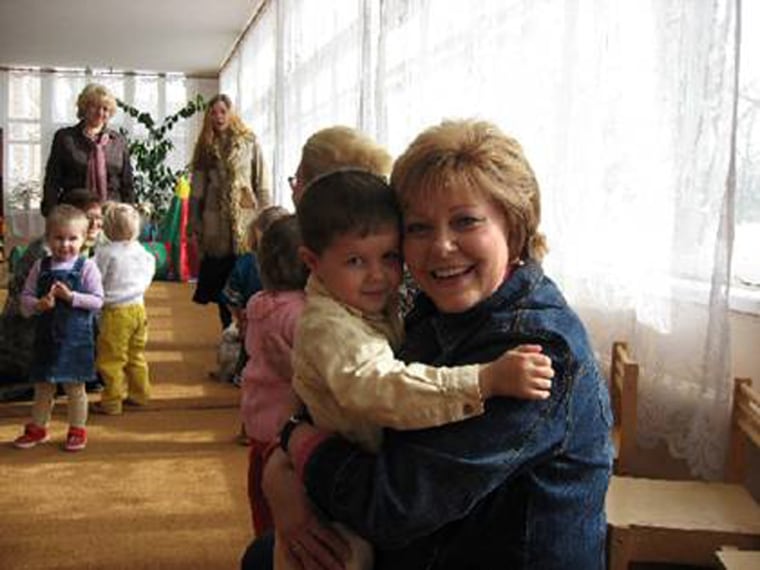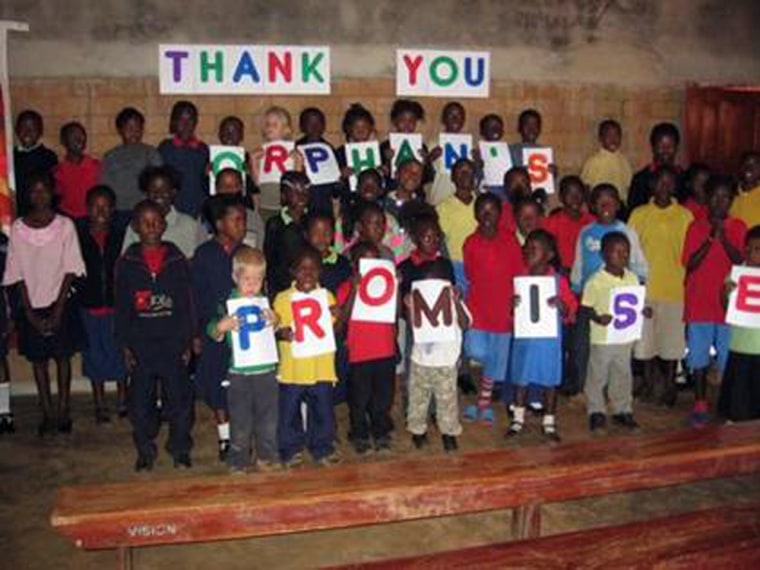Cause Celeb highlights a celebrity’s work on behalf of a specific cause. This week, we speak with broadcaster, singer and former Miss America her involvement with
Meeuwsen was crowned Miss America in 1973. Before being crowned, she also pursued a career as a singer with the New Christy Minstrels. Her foray into television started at NBC’s affiliate in Milwaukee, WTMJ-TV, when she was invited to co-host the show “A New Day” in 1978. After eight years at the station, she left to spend more time with her family. She made numerous appearances on CBN’s “” before becoming a permanent co-host in 1993 with CBN founder Pat Robertson.
Meeuwsen released the album “Eyes of My Heart” in 1995. She is also the author of several books. Her most recent book recounts the adoption process of her three Ukrainian daughters and is titled, “The God Adventure.”
Q: Can you tell us about Orphan’s Promise and your role as the director?
Meeuwsen: Orphan’s Promise really started about three-and-a-half, four years ago. My husband and I adopted three daughters, all siblings from Ukraine, seven years ago. When we came back, we just saw the kids that were left behind, and we said, “What happens to these kids?” A lot of people don’t really realize it, but most kids age out of orphanages in their countries at about 16, and they’ve been for the most part institutionalized. They don’t have any background, any training, any life skills. They’re just simply released from government care. I began to talk with a friend about how we can make a difference in this, and out of that Orphan’s Promise started.
We started very small. We had no idea it would grow like this. We opened our first center in Kiev, Ukraine. We took in orphans and vulnerable children. We taught the kids English, computer skills, and life skills. For a lot of these children, nobody ever listened to them before. They were just sort of on the periphery because of the fiscal situation in their country. But it was so successful that we were able to tell the story of what had happened in the lives of some of these children, and, through gifts from other people, we opened a center in Berdyansk, Ukraine, which was the city in which my girls had been in an orphanage. So it just began to mushroom. We now have six training centers. We’ve got six satellite locations, three transition homes, and it began to grow, and doors began to open.

As people knew we had a heart for this, they provided funding; and, as people in the field knew that there was funding available, they provided applications for requests for this kind of thing for kids in their area. We worked through people who are already on the ground there, some of them are national, some of them are people who have gone from the States to work over there. We work through local churches in the area, so there is a consistent sort of overseeing of the center that we opened. Sometimes, we build dorms. If they are needed, we have helped to build schools.
Q: With your own fundraising experience, what advice would you offer someone who is fundraising for charity?
Meeuwsen: The problem is huge. Experts are saying that by next year, 2010, there will be, and this is just an estimate, 146 million orphans in the world. By their definition, I’m pretty sure that they mean by orphan a child that is without parents. Well, in Ukraine alone, most of the kids in orphanages are not technically orphans. They’re kids who are there because of life circumstances and poverty.
So, if there are 146 million orphans, you can imagine how many kids there are that are not in families that are being institutionalized. Or, they’re counting from kids that are in facilities like that. We know that on the streets are thousands more, in almost every city in every third world country in the world. The numbers are huge. This is what we find, if you can bring that number down for people into a name and a story and show them the reality of what this is like for a kid who belongs to no one, who has no future, who’s out there, really open prey if you will, to glue-sniffing, alcoholism, drug usage. A lot of them get into abusive relationships because that’s what they see in their own homes because of the stress of poverty. Prostitution, everybody around the world today knows about sex trafficking, these kids are prime targets. There’s nobody looking out for them.
I always say to people when I have the chance to talk to them about Orphan’s Promise: we can’t change them all, but we can speak to the ones who cross our paths. We can make a difference. You can’t just sit down because you can’t fix the whole problem. You gotta do what you can with what’s in front of you.
Q: Is there anything else you would like to add?
Meeuwsen: We are in 35 countries and counting right now, and this has all happened over a relatively short time. It is so exciting to see doors opening and to have an opportunity to make a difference.
